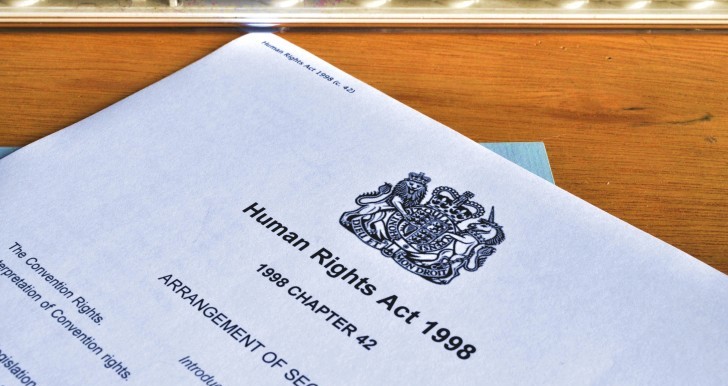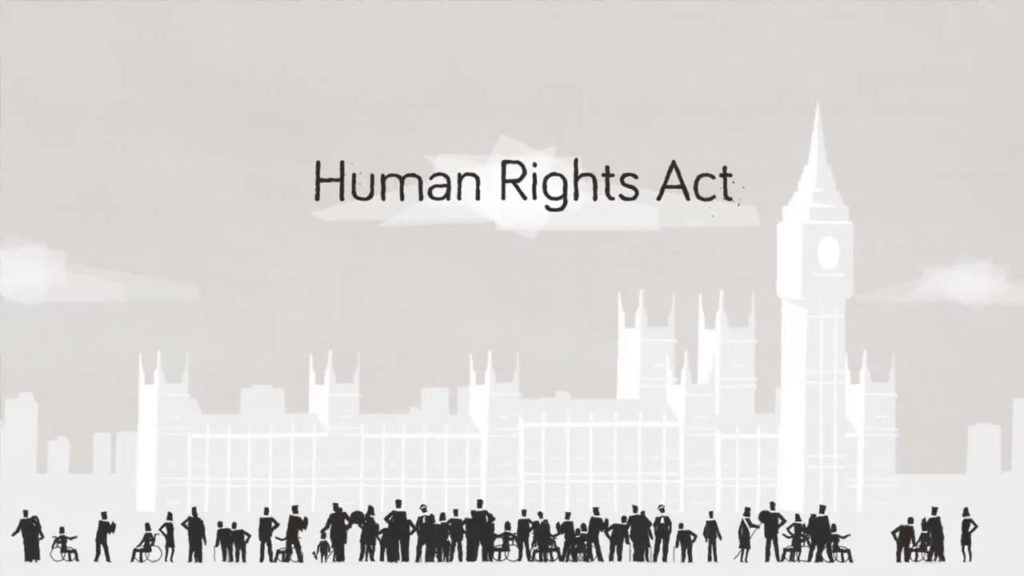
The Human Rights Act and Social Housing
Despite the current upheavals the Human Rights Act remains in force and is likely to continue to be in place for several more years.
Which human rights are most applicable to social housing?
Right to a fair trial
Everyone has the right to a fair and public hearing, before an independent and impartial tribunal, within a reasonable time. The right to a fair hearing is mainly applicable in social housing to appeal processes. In short this means that every individual has the right to be heard, in their own language, and when decisions are made they will be for legitimate reasons which are then explained.
Right to respect for private life, family life and the home
Everyone has the right to respect for their private and family life and also the right to respect for their home and correspondence. In practical terms this means people should be able to live in privacy and be able to live their life in the way that they choose. Their personal information should be kept private and confidential. The right to respect for family life includes the right for a family to live together.
Prohibition of discrimination
This means that everyone must have equal access to the other rights contained in the Human Rights Act, regardless of their race, religion, gender, sexual orientation, disability, political views or any other personal characteristic. For example, the HRA means that a gay couple has to be treated in the same ways as a heterosexual couple in relation to the right to succeed to a tenancy.
Does the Human Rights Act (HRA) give people the right to a home?
The Act does not normally give anyone a right to a home or to any particular form of accommodation. Instead it concentrates on the right to respect for a home that a person already has.
Even accommodation that has been a person’s home for all of their life can be taken away if the circumstances are by lawful action taken by a public authority which is in pursuit of a prescribed legitimate aim.
What does the Human Rights Act (HRA) mean in practice with regard to social housing?
 Allocation of housing
Allocation of housing
The HRA does not give anyone a right to a home from a particular social housing provider. The Act does, in certain circumstances, require the UK to provide shelter for those who are so vulnerable that they would not receive respect for their family life or private life if they were left on the streets but the HRA does not impose an obligation on any individual social housing provider to do so.
Aids and adaptions
Social housing providers, particularly local authorities, are already subject to statutory or regulatory obligations to provide certain aids to disabled tenants, or permit certain adaptations to social housing. However there is no human right to the provision of a home with particular aids or adaptations any more than there is a right to the provision of any home at all. However, once a person has a home then they are entitled to respect for it and to respect for their private lives in order that they can enjoy it.
Anti-social behaviour
Nothing in the HRA provides occupiers of social housing with an excuse for deliberately engaging in behaviour which is a nuisance or annoyance to others. Taking steps to control such behaviour does not put social landlords and other agencies in breach of the act so long as the measures they take are proportionate. The response of social housing providers to incidents of anti-social behaviour is more likely to relate to the human rights of the victims than to those of perpetrators!
Termination of tenancy and eviction
In order for an eviction to be lawful under the HRA, a local authority should be able to show that it is acting in accordance with the law, that its actions are in pursuit of a legitimate aim, and that they are both necessary and proportionate. Most social housing tenancies require a legal possession order be granted in order to a tenancy. This ensures that a court is involved, that a ground for seeking possession is made out and can be challenged and that it is reasonable to evict the occupier.
The UK Supreme Court has recently decided that in all such cases when examining a possession claim where the right to respect for the home is raised, the local courts will have a responsibility to consider whether the interference is justified.

Leave a comment